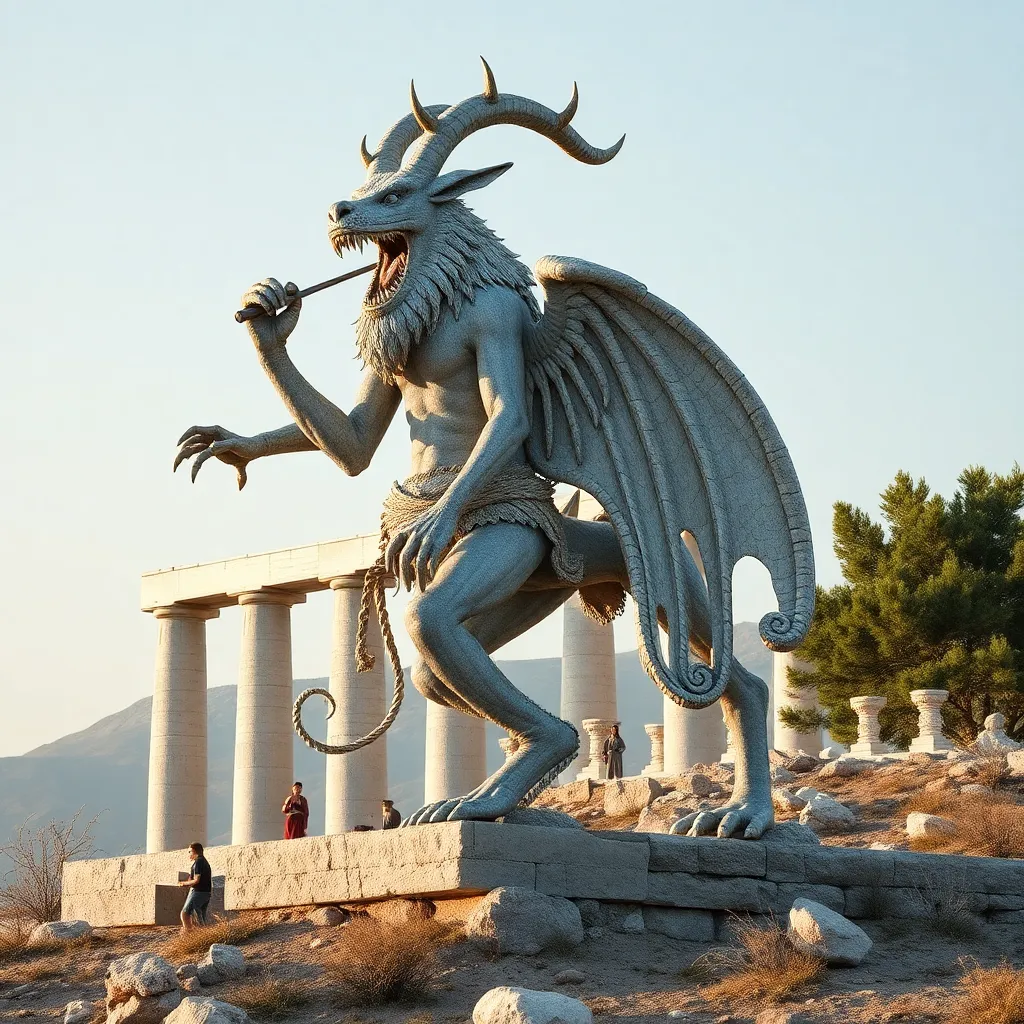The Role of Mythological Creatures in Greek Mythological Structure
I. Introduction
Mythological creatures in Greek mythology encompass a wide variety of beings, both divine and monstrous, that have captivated the imagination of people for centuries. These creatures range from the majestic gods of Olympus to fearsome beasts that challenge heroes. Their presence is integral to the fabric of Greek myths, serving various narrative purposes and symbolizing complex themes.
This article aims to explore the significance of mythological creatures within Greek mythology, examining their historical context, types, symbolism, narrative roles, and their broader cultural and religious implications. Through this exploration, we can better understand the enduring legacy of these fascinating beings.
II. Historical Context of Greek Mythology
Greek mythology has its origins in the ancient cultures of the Mediterranean, evolving over time through a rich tapestry of stories, rituals, and artistic expressions. The historical context of Greek mythology is shaped by several factors:
- Origins and Evolution: Greek mythology began as oral traditions, with stories passed down through generations. As Greek society developed, these myths became more structured, leading to the creation of written texts by poets like Homer and Hesiod.
- Cultural Influences: The myths reflect the cultural, social, and political landscapes of ancient Greece, incorporating elements from neighboring civilizations and adapting to changing societal norms.
- Oral Traditions: Oral storytelling played a crucial role in shaping and preserving these myths, allowing for variations and adaptations that enriched the narratives over time.
III. Types of Mythological Creatures
Greek mythology is populated with a diverse array of creatures, each serving unique roles within the stories. These can be categorized as follows:
A. Gods and Goddesses
The Olympian gods, including Zeus, Hera, Poseidon, and Athena, embody various aspects of life and nature. Each deity has distinct attributes and myths associated with them, representing:
- Power
- Wisdom
- Fertility
- War
B. Monsters and Creatures
Monsters play a vital role in Greek mythology, often symbolizing chaos or challenges that heroes must overcome. Notable examples include:
- The Minotaur: A creature with the body of a man and the head of a bull, representing the consequences of human hubris.
- The Chimera: A fire-breathing creature composed of parts from different animals, symbolizing the unpredictable nature of existence.
- Medusa: A Gorgon whose gaze turns men to stone, representing fear and the power of the feminine.
C. Heroes and Demigods
Many heroes, such as Heracles and Perseus, are often demigods, possessing divine ancestry. Their adventures frequently involve encounters with mythological creatures, illustrating themes of bravery and the human condition.
IV. Symbolism and Themes Associated with Mythological Creatures
Mythological creatures are rich in symbolism and often embody significant themes:
A. Representations of Human Emotions and Conflicts
Creatures such as the Sphinx, which poses riddles, symbolize the complexities of knowledge and understanding, while others may embody fear, desire, or chaos.
B. Themes of Transformation
Many myths involve transformation, such as the tale of Lycaon, who is turned into a wolf, highlighting the fluidity of identity and the nature of existence.
C. Good and Evil Duality
Creatures often embody the struggle between good and evil, as seen in the character of Cerberus, the three-headed dog guarding the underworld, representing both protection and fear.
V. Mythological Creatures as Plot Devices
Mythological creatures serve crucial functions in advancing narratives:
A. Advancing the Narrative
Creatures often drive the plot forward by presenting challenges to heroes, creating tension and conflict that must be resolved.
B. Challenges and Obstacles
Encounters with creatures like the Hydra or the Cyclops serve as significant trials for heroes, testing their strength and ingenuity.
C. Catalysts for Character Development
Through their interactions with creatures, heroes often undergo personal growth, learning vital lessons about courage, humility, and the human experience.
VI. Cultural and Religious Significance of Mythological Creatures
Beyond their narrative roles, mythological creatures hold cultural and religious significance:
A. Rituals and Worship
Some creatures were central to religious practices and rituals, symbolizing divine power or serving as guardians of sacred spaces.
B. Impact on Society and Values
Mythological creatures reflect ancient Greek values, such as bravery, intelligence, and the importance of community, shaping societal norms and ethics.
C. Legacy in Modern Interpretations
Today, the legacy of these creatures endures through literature, film, and art, inspiring countless adaptations and reinterpretations that keep their stories alive.
VII. Comparative Analysis with Other Mythologies
Examining mythological creatures in other cultures reveals both similarities and differences:
A. Similarities and Differences
While many cultures feature mythological creatures, the roles they play can vary significantly. For example, in Norse mythology, creatures like trolls and giants often embody chaos, while in Egyptian mythology, beings like the Sphinx serve as guardians of wisdom.
B. Influence on Subsequent Mythologies
Greek mythology has had a profound impact on later mythologies, influencing the portrayal of creatures in Roman, Norse, and even modern fantasy narratives.
C. Case Studies
Comparing Greek creatures to those in Norse and Egyptian mythology reveals unique thematic representations and cultural values, such as the Valkyries in Norse myths, who guide fallen warriors, or the Egyptian Anubis, who oversees the afterlife.
VIII. Conclusion
Mythological creatures in Greek mythology play a vital role in shaping narratives, embodying themes, and reflecting cultural values. Their significance extends beyond ancient tales, influencing modern interpretations and continuing to resonate in contemporary culture.
As we reflect on the enduring legacy of these creatures, their stories remind us of the complexities of the human experience, inviting exploration and understanding. Studying these beings offers insights into the past and encourages us to engage with the rich tapestry of mythology that continues to fascinate and inspire.




